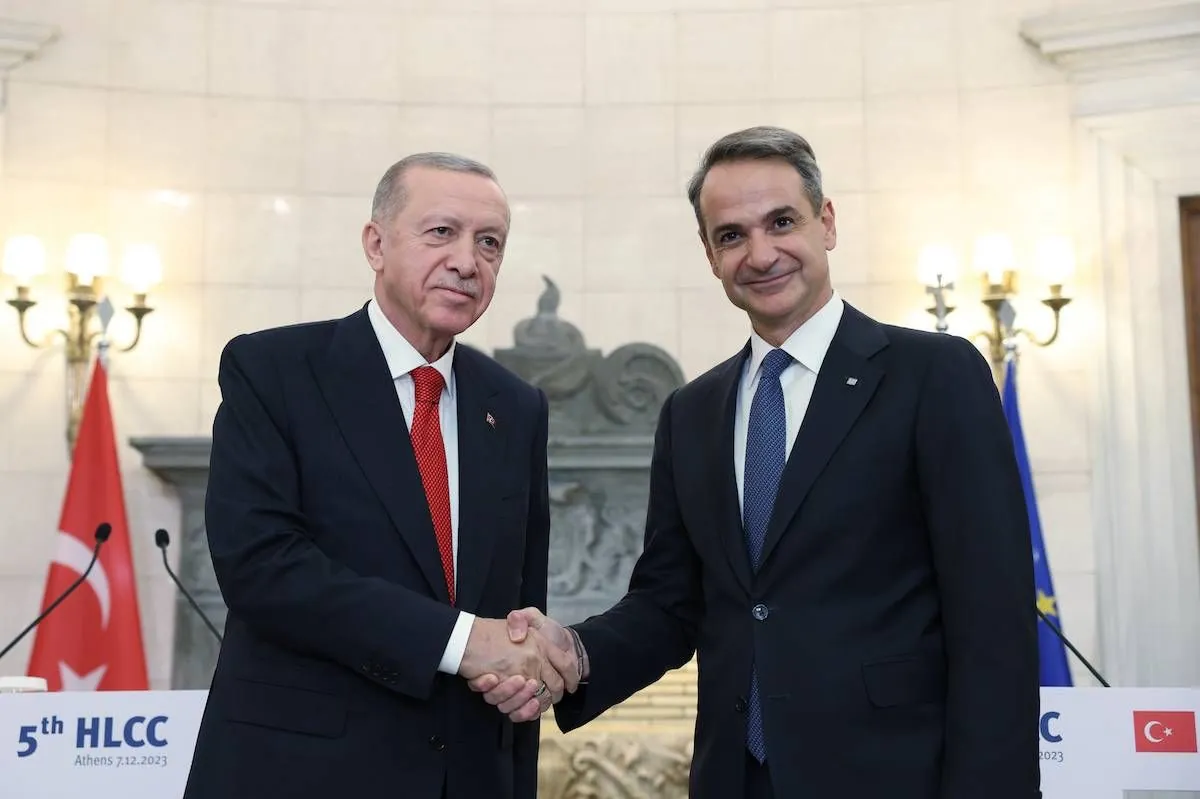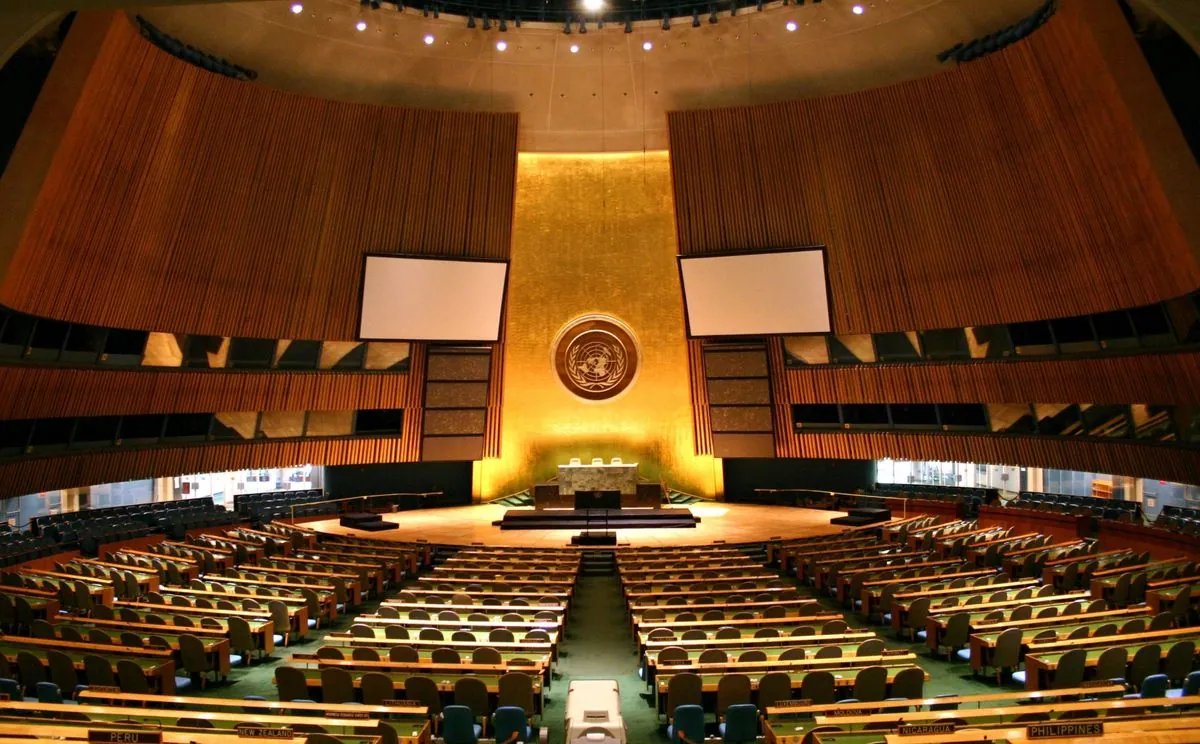Greek PM and Turkish President to Meet at UN Assembly Amid Thawing Relations
Greek PM Mitsotakis and Turkish President Erdogan set to meet at UN General Assembly, continuing diplomatic efforts. The encounter follows recent steps to ease longstanding tensions between the NATO allies.

Kyriakos Mitsotakis, the Greek Prime Minister, is scheduled to meet with Turkish President Tayyip Erdogan on September 24, 2024, during the annual United Nations General Assembly in New York. This encounter, announced by the Greek government spokesperson, marks a continuation of diplomatic efforts between the two nations.
The upcoming meeting follows their previous interaction at a NATO summit in July 2024, highlighting the ongoing dialogue between the two leaders. Greece and Turkey, both NATO members since 1952, have a complex history characterized by periods of tension and cooperation.
Despite their alliance, the two Mediterranean neighbors have grappled with numerous disputes over the decades. These disagreements encompass various issues, including airspace boundaries, maritime jurisdiction in the Eastern Mediterranean, and the situation in Cyprus, which has been divided since Turkey's military intervention in 1974.

The relationship between Greece and Turkey has deep historical roots, dating back to the Greek War of Independence from the Ottoman Empire (1821-1830). Their modern interactions have been shaped by significant events such as the population exchange of the 1920s, which involved the relocation of approximately 2 million people, and the Treaty of Lausanne in 1923, which defined the borders of modern Turkey.
In recent years, both nations have made concerted efforts to improve their relations. In 2023, they pledged to maintain open channels of communication, implement military confidence-building measures, and address long-standing issues. This commitment to dialogue represents a shift from previous periods of heightened tension, such as the Imia/Kardak crisis in 1996, which brought the countries to the brink of conflict.
The ongoing diplomatic initiatives between Greece and Turkey are particularly significant given their shared challenges and responsibilities. Both countries have been affected by the European migrant crisis since 2015 and play crucial roles in regional security. Turkey's control over the strategically important Bosphorus and Dardanelles straits, as outlined in the Montreux Convention of 1936, underscores its geopolitical importance.
While progress has been made, several issues remain unresolved. The Cyprus situation continues to be a point of contention, with the island divided by a UN buffer zone since 1974. Additionally, disputes over natural resource exploration in the Eastern Mediterranean have led to periodic tensions.
"This meeting demonstrates our commitment to maintaining open dialogue and seeking peaceful resolutions to our differences."
The upcoming meeting between Mitsotakis and Erdogan is viewed as an opportunity to build on recent positive developments. It reflects a mutual understanding that cooperation is essential for regional stability and prosperity. As both nations continue to navigate their complex relationship, the international community watches with interest, hoping for continued progress in Greek-Turkish relations.


































